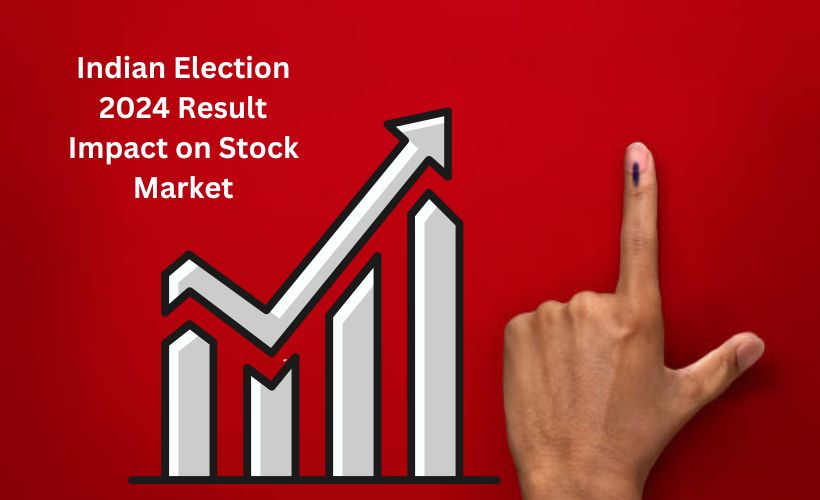
Tuesday, June 4, will be remembered as a day of unprecedented turmoil in the Indian markets. Just a day after witnessing a significant surge, the markets took a drastic U-turn, wiping out all of Monday’s gains. The reason behind this sudden downturn? The early trends of the Lok Sabha election results hinted at a tighter contest than what the exit polls had predicted.
This unexpected twist sent shockwaves through the investor community, triggering a wave of panic selling. As a result, the market capitalization plummeted by a staggering ₹26 lakh crore in intraday trading, plummeting from ₹426 lakh crore in the previous session to around ₹400 lakh crore. The sudden erosion of wealth left investors reeling, wondering what had hit them.
The Indian stock market witnessed a free fall on Tuesday, with the BSE Sensex nosediving to its lowest point of the day at 72,337.34, a staggering 4,131.44 points or 5.4% down from its previous close. The broader Nifty index wasn’t spared either, plummeting 1,263.3 points or 5.4% to a low of 22,000.60. The sheer scale of the decline left investors stunned, as the market’s downward spiral showed no signs of slowing down.
In a dramatic turn of events, the Indian stock market experienced a wild rollercoaster ride, with Monday’s excitement giving way to Tuesday’s despair. Just a day after witnessing its biggest single-day rally since January 2021, the market came crashing down, erasing all its gains and then some.
On Monday, investors were in a celebratory mood, driven by exit poll results that predicted a third consecutive win for the NDA in the 2024 Lok Sabha elections.
But Tuesday brought a harsh reality check. The early trends in the Lok Sabha election results told a different story, one that was at odds with the predictions of the exit polls. This sent shockwaves through the market, triggering a sharp decline that left investors reeling.
As the markets experience a downturn, market participants are being urged to be cautious and keep a close eye on the results of the election and how they may affect the financial markets.
Investors need to avoid making impulsive decisions based on short-term market movements. Instead, now is the time to reassess your portfolio based on your risk profile. High-quality stocks that are currently available at discounted valuations may be attractive to long-term holders, but it’s important to be prepared for continued volatility until the election results provide some clarity.
Investors should avoid reflex reactions and reassess portfolios based on risk profiles. Quality stocks at discounted valuations are opportunities for long-term holders. However, brace for volatility until the election results provide clarity. Diversification across asset classes remains crucial. Consult financial advisors to review portfolios. Once the political landscape settles, the market could find support if a stable government emerges to drive economic reforms.
Once the political landscape settles and a stable government emerges, the market could find support and potentially rebound if that government can drive economic reforms. In the meantime, it’s important to stay informed and make thoughtful, strategic decisions about your investments.
Conclusion
Staying informed is key, so make sure to stay up-to-date on market trends and news. But don’t rely solely on headlines and speculation – seek the guidance of a financial professional who can provide personalized advice tailored to your unique situation. Instead, take a step back, assess your financial goals, and adopt a cautious and balanced approach to investing.
So, take a deep breath, and remember that a well-planned investment strategy is the best defense against election-induced market jitters.



